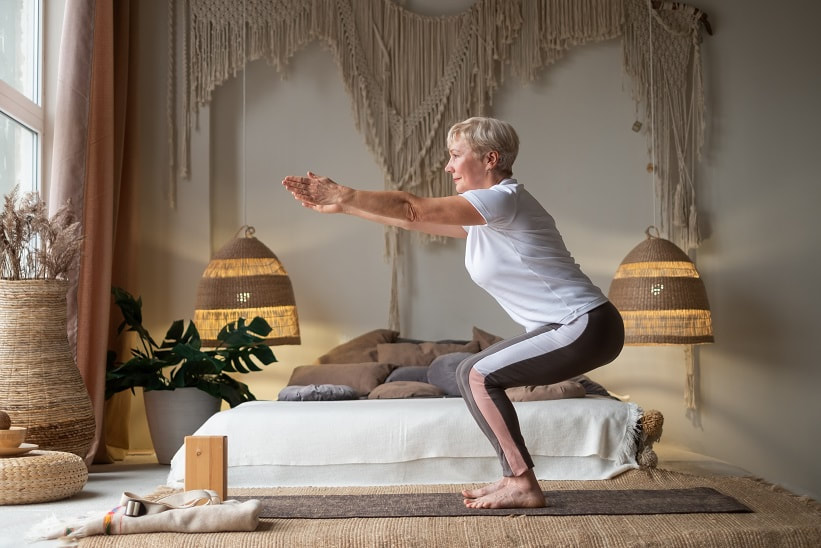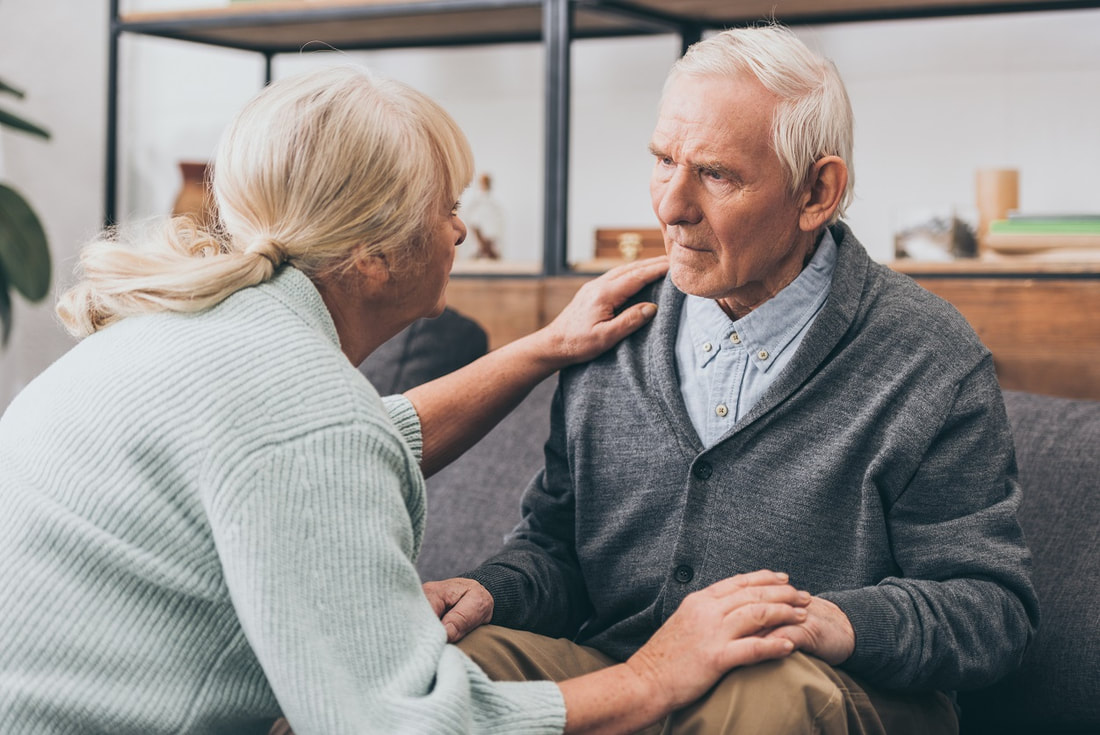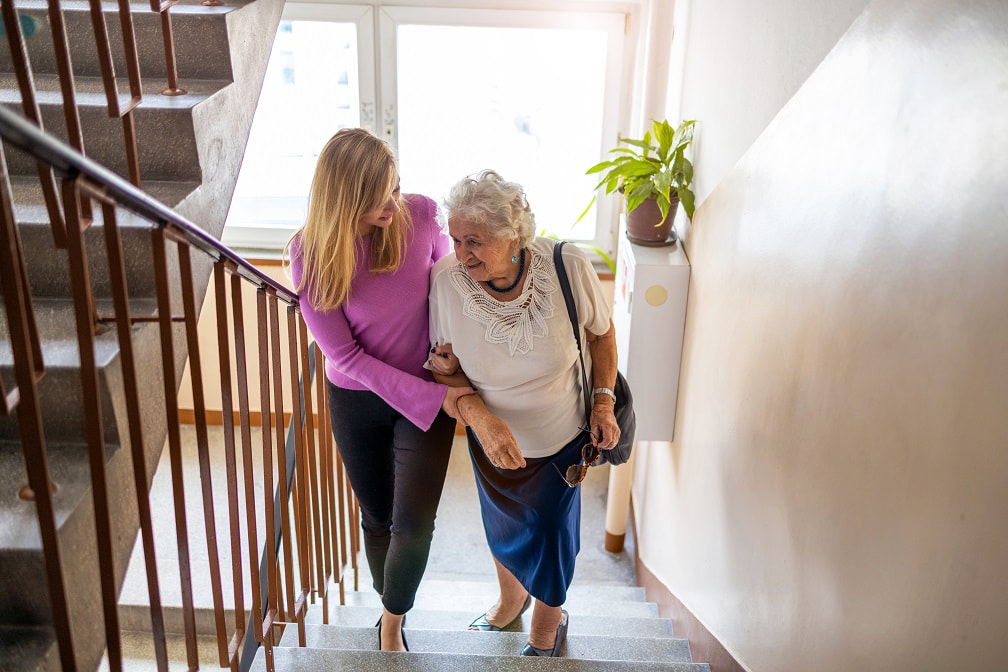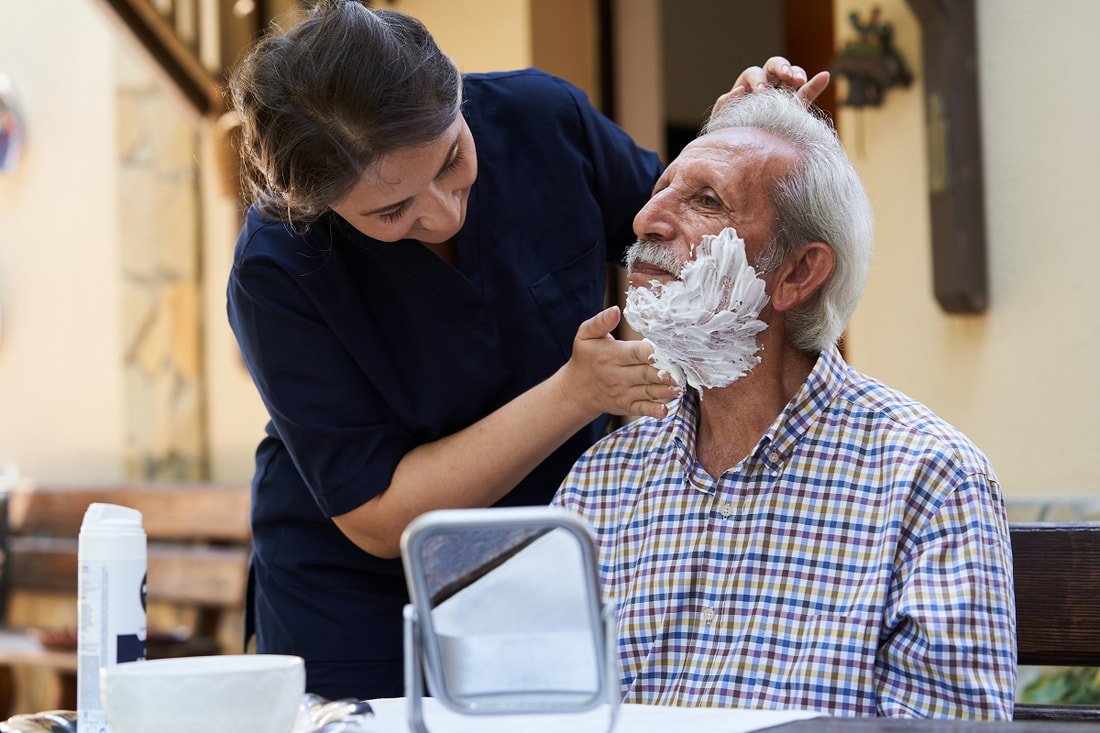|
Holistic senior care is much more than what most people think it is While holistic senior care incorporates alternative or complementary treatments, it is administered by qualified medical practitioners like MDs, integrative physicians, nurse practitioners, and DOs. Wellness redefined What comes to mind when you think about wellness? Most often wellness is associated with the absence of disease. However, humans have needs beyond the physical that require care and attention: emotional, spiritual, social, and intellectual wellness are integral to wellbeing. Incorporating care for every facet of human needs is vital for overall health and fulfillment in life. As a model of care, according to the National Institutes of Health, holistic care “...refers to the provision of care to patients …based on a mutual understanding of their physical, psychological, emotional, and spiritual dimensions.” Holistic senior care is much more than management of disease and illness; as an approach to health care that supports the whole person, it seeks to achieve wellness through balance. Misconceptions about holistic care A commonly held belief is that “complementary” or “alternative” therapies replace sound medical knowledge and science, but nothing could be further from the truth. Let’s look at pain control as an example: How do you typically manage pain? Do you use traditional medical methods like medications? Do rest or ice or heat normally help relieve pain? Physicians routinely order these treatments. Think of holistic care as a non-drug add-on to common pain management methods. In addition to medications or rest, pain control can be addressed with methods such as massage, acupressure, spiritual practice, exercise, nutrition, and others. Treating the whole of the person in pain can relieve the severity of symptoms in a way that traditional methods alone don’t. Perfect Care Match believes in the power of holistic care Rest assured that when you choose PCM as your home care provider, your care plan will be developed with your specific needs in mind. Our focus is assisting our clients in living their best lives, however they may envision it. Our team understands that our home care clients experience numerous challenges to wellness, and not necessarily medical conditions. Being homebound for any reason, for any length of time, contributes to a decline in cognition for older adults. Mental health suffers, as does nutrition and the ability to exercise, even if the client has limited mobility. Isolation and loneliness are very common for folks who are homebound with few opportunities for recreation or interaction with others. Without intervention, a lack of holistic support will ultimately lead to a decline in physical health. Alternative treatments, that is, treatments that do not involve the use of medications, can be a powerful adjunct to any traditional medical practitioner’s treatment plan. However, many advocates of the holistic care model are physicians or other qualified, licensed medical practitioners. Do you believe in the power of prayer, or visualization, or aromatherapy, or yoga? These are all recognized forms of alternative treatment. Professional Care Match recognizes that there are no “one size fits all” approaches to home care, just like commonly used medical treatments for cancer or dementia are tailored to each patient. Our clinicians work to develop treatment approaches based on the client’s activity tolerance, cognitive status, food preferences and customs, spiritual traditions, and personal interests. We recognize and respect the cultural differences that inform how care is provided. How does the holistic model help home care clients? There is immense power in the simple act of touching someone: a hand or scalp massage or a light back rub can be very soothing. Sharing a conversation and a cup of tea can be restorative to the spirit. Guided imagery can improve mood and relieve discomfort. Chair yoga or light exercise keeps muscles active. Time spent outdoors is therapeutic. Religious practices and spirituality help to focus and center the client, particularly in times of stress. A favorite food can bring tremendous comfort for someone who is having trouble eating. Working on a jigsaw puzzle, reading, playing cards, and doing crosswords help to maintain mental acuity. PCM uses countless approaches to enrich the lives of you or your loved one. Whatever your needs are, Personal Care Match is here for you.
0 Comments
The best option - aging in place
Being responsible for a loved one who has dementia is challenging and emotionally devastating. In-home services for seniors eases the burden and gives the family peace of mind. Aging in place is often the best option when caring for an older adult with dementia. Familial caregivers are often unfamiliar with the stages of dementia and the best methods for dealing with dementia patients. With Professional Care Match, families are assured that their loved one is receiving care without the demands and distractions of facility-based care. In-home care vs long term care In-home care for seniors is preferable to long-term care since the pandemic has had such a tremendous effect on this vulnerable population. Families have discovered that in-home care is a better value than facility-based care. Staff shortages at facilities have had a negative effect on the well-being of patients, leaving their loved ones concerned that the patient isn’t receiving adequate care. Professional Care Match is here for you and your loved one Professional Care Match provides experienced in-home care staff for seniors. Our team employs best practices for the challenges of care and behavior management. What is dementia? Dementia is the term clinicians use to describe a group of symptoms that cause cognitive decline. Alzheimer’s Disease (AD) is most common. Other types are Lewy Body (LBD), Frontotemporal (FTD), Vascular, and Korsakoff Syndrome. Dementia is a feature of other diseases, as well, like Parkinson’s or Huntington’s disease. Stages of dementia Early stages of dementia are difficult to pinpoint; the person may be a bit forgetful or have problems with word-finding. As the disease progresses the signs become more obvious. Families find comfort in knowing the patient has 24-hour supervision at home. Loss of judgment, distorted perceptions, inability to plan, learn new things, or remember familiar people are signs of cognitive decline. More alarming are personality changes such as new or increased depression, paranoia, agitation, combativeness, wandering, and sleep disturbances. In later stages the person can no longer perform self-care tasks or communicate needs; the end stages of this disease are harder for the family than the patient. Diagnosing Dementia Cognitive decline isn’t part of the normal aging process. Being forgetful or pleasantly confused is not an indicator of dementia without the other hallmark symptoms. Neuropsychiatric clinicians use a method called differential diagnosis to determine the type of dementia. Patients are diagnosed based on age of onset and the presence or absence of symptoms. Dementia is a terminal illness regardless of the type; the constellation of symptoms that patients exhibit generally follow the same course. How can we care for our loved ones at home? While family members may be able to provide support to remain at home, it’s a heavy burden. Being the caregiver for a declining parent or spouse is often a full-time job. The stage of the disease. When the person has become incapable of managing their daily lives and self-care, intervention is required to maintain health and safety. Home care professionals ensure the person receives nutrition, hygiene, medical management, safety, and companionship. They are experienced and trained to manage the behaviors that inevitably arise with the progression of the disease. In-home companions provide a social and personal connection; the carer can also monitor for changes and report concerns back to the care team. Self-care and safety concerns As the disease progresses, the person begins having problems with self-care and managing their daily lives:
Managing behaviors The person with dementia exhibits behaviors like wandering, disrobing, sleep disturbances, mood changes, or agitation. Unfortunately, this is the disease. Remember that the person isn’t making a conscious choice to ”misbehave” or lash out at loved ones. The person may become fearful and paranoid, experiencing hallucinations or delusions. They may have repetitive behaviors like lip-smacking or hand-wringing. Sundowning is the term used for late afternoon escalations in confusion and challenging behaviors. While the person can’t change their behavior, the caregiver can assist in deescalating the situation. The person is often triggered by factors that can be mitigated.
In-home dementia care might be the best choice you make for your loved one. Professional Care Match will help you help your loved one. Assisted Live-in Caregivers help older adults stay healthy and safe at home
Curtailing the amount of traffic in our clients’ homes is prudent during these challenging times. Older adults and those living with a disability are at higher risk for COVID; they fare much better at home than in an assisted-living facility or nursing home (also known as a skilled nursing facility). A limited number of visitors to the home means fewer opportunities for possibly life-threatening infections. How Do I Find Assisted Live-in Care? When you have decided that a live-in caregiver is your best support option, you’ll find that locating the right person can be a grueling process. At Professional Care Match we have the experience to help you find the perfect candidate to whom you can entrust your loved one. Our experienced professionals have been thoroughly vetted and trained to assist people in their homes; our services reduce the burden to families and give them peace of mind. In-home Care Services For Vulnerable People At Professional Care Match, we rigorously prepare our in-home staff to use preventative measures to minimize the risk of COVID-19 or other infections, and are mindful of the many lingering health problems that could accompany such an infection if the person survives the ordeal. Assisted Live-in Care Only Professional Care Match offers assisted live-in care services to clients and families. We ensure our clients receive everything they need to allow them to remain at home for as long as possible. We serve people from all backgrounds: seniors, people with disabilities, and people who are most at risk for infection and injury. There are innumerable benefits to such an arrangement. What Is Aging In Place? Remaining at home as one ages is an attractive concept for 9 out of ten people. Regardless of age, economic status, or level of ability, there are many benefits to aging in place. The familiarity and comfort of home reduces the stress on our clients’ wellbeing and allows them to enjoy their lives. Remaining within their familiar community means less distress and confusion, particularly for those with cognitive deficits. We can all agree that when mom is happy, everyone is happy! Assisted Live-in Care Curtails COVID Infections Keeping our clients safe and healthy at home is our objective. Access to a reliable helper who cares for only the person with whom they live is an extraordinary opportunity for our clientele. Keeping a “closed-loop” of contacts is proven to be an effective measure to combat coronavirus infections and possible long-term complications. When caregivers have only one client, there is less concern of infection being brought from one home to another. What Does An Assisted Live-in Caregiver do? For clients requiring modest assistance, the live-in caregiver remains available as the person manages daily life. They offer direction or supervision with most day to day house tasks. Live-in caregivers look after clients who are debilitated or have pain, reducing the risk of serious events like a fall or cooking accident. Consistency of care means the helper knows their baseline and notice acute changes; observe and report signs of illness, like weight loss or wounds; and maintain clear communication with the family and the medical team. Greater Comfort At Home For clients with cognitive impairments, an in-home assistant can help diminish the common experiences of fear and distress that accompany progressive diseases, like dementia. In familiar surroundings, the cognitively declining person escapes the disquietude of transferring to a care facility. Transitioning to a nursing home is emotionally exhausting for everyone involved. The person needing care is not only in an unfamiliar physical space, the other senses are assailed as well, leading to greater anxiety. The sights and feel of home, the way it smells and sounds, brings comfort and security. Quality Of Life Quality of life is important, but arguably it’s most needed as we approach our sunset years. Older adults grieve the loss of their independence or health; their friends and family. With diminished opportunities for entertainment and enrichment, having a consistent caring companion in the comfort of home helps enrich your loved one's quality of life. Solutions for homecare: What does a professional caregiver do for clients?
Many families opt for in-home caregivers to either live-in or visit, and provide professional services for a loved one whom they wish to remain at home. What are the qualities of a professional caregiver? Who becomes a professional caregiver? A caring profession Professional caregivers come from all walks of life. They have varied educational, social, and economic backgrounds. Some caregivers are new to the field, while others are retired and looking for a meaningful way to spend their free time. Some are introduced to the field while caring for a friend or family member in their home. Nurses who work in home health care are often seasoned veterans who prefer the personal relationship; as they approach retirement age they want to leave the grueling hospital environment. The common thread is that all caregivers work in a helping profession. Individualized care An in-home caregiver provides the same services as facility-based caregivers. The home care client may need various levels of care at different times. Bathing, dressing, grooming, and using the bathroom are some tasks the home care professional can help with; the in-home helper also provides companionship, meal preparation, medication reminders; and sometimes errands, transportation, or laundry and light housekeeping. Oftentimes, it’s the professional caregiver who notices changes in the client. The relationship between the home care team, the client, and sometimes the family, is more personal. Preferences are anticipated, wishes are honored. Home care professionals have ample time to get to know the person they are caring for, one on one. What are the qualities of a professional caregiver? Home care requires many skills that most people already possess: for example, companionship and conversation, errands and chores, laundry and housekeeping, kindness and respect, and keeping appointments. However, professionals receive additional training specific to the population they serve. Older adults have commonalities: they need safety and cleanliness, perhaps reminders to take medications, and health and behavioral monitoring. Caregivers should be trained for dealing with emergencies; they should know how to perform CPR and be able to provide basic first aid. A non-clinical caregiver is the eyes and ears of the clinical team. They observe, document, and report changes in the client’s status, including changes in mental or physical health, appetite, functional ability, injuries, and improvements, for example. Every day is different, and your care professional must be ready to address whatever issues that arise. Family members who live far away from their loved ones often call periodically. The parent will usually say everything’s fine, no problems, everything’s great, or something similar. Too often that is not the case. Without being able to lay eyes on the situation, we don’t know if mom’s really okay; the truth is, mom doesn’t want to worry you, or perhaps she isn’t aware that things are going downhill. Families may not be aware of the situation until they get a call from a hospital or nursing home. Home care offers benefits that will ease families’ minds Find a trustworthy in-home caregiver agency In-home help is needed, whether or not families can manage caring for loved ones. Perhaps they need respite so they can care for themselves. Maybe they need someone to come help their parents a few days a week, or only at night. Every family’s needs are different. Our staff cares for your loved ones and we handle everything that comes with being an employer: background checks, payroll taxes, training, compliance, and certification. When it’s time to find a reliable and professional caregiver agency, Professional Care Match is here for you. While they sound the same, there is a distinct difference between home health care and in-home care ( or home care). Both are professional services that support persons in their home, but home health care includes a nurse on the care team.
Value-based In Home Care Services Aging in place is much less expensive than facility-based care. Home care allows clients to stay in their homes and receive assistance with activities of daily living (ADLs) such as dressing, bathing, eating, and elimination needs. The people who need in-home care are not only elderly people; younger people also wish to remain in their homes but need extra help because of medical set-backs, chronic health problems, or are living with a disability. The familiarity of one’s home is comforting and calming to a person who is ill or confused. A change in environment triggers confusion and panic, potentially leading to safety concerns or worsening health. Dependable Caregivers As family members care for their loved ones they are also trying to live their own lives: work, children, and perhaps most importantly, taking care of themselves. Having a dependable resource to ease the burden is crucial to family caregivers who may be getting burned out. Professional Care Match provides qualified and highly-trained caregiver staff who have been thoroughly vetted during the hiring process. Who Qualifies For Home Health Care Services? Home health care service requires a physician order to be covered by insurance, usually Medicare. The home health team includes a nurse; depending on the client’s needs, there may be a rehab team to help improve the person’s mobility or ADLs. Home nursing care includes wound care, injections and IV medication administration, medication management, and other medical monitoring. A Certified Nursing Assistant (CNA) may work with the nurse and visit the home to assist with ADLs. The frequency of CNA visits depends on the nurse’s individualized assessment; sometimes three weekly visits are enough. Sometimes two daily visits are needed. All care is coordinated by Professional Care Match. When Does Home Health Care Stop? If insurance is paying for services, the usual cut-off point is when the client returns to baseline functioning, or is evaluated as having reached a plateau in improvement. You Deserve “Above and Beyond” Home care teams often become a part of the client’s extended family; they celebrate holidays and witness important events in the person’s life. They share in the sorrows the client may experience. Empathy, support, and consistency are the hallmarks of a good caregiver. The demand for home care has increased 44% in the last 5 years. Professional Care Match is here for you and prepared to assist you or your loved one with nursing services or extra help when you need it most. We offer care for short periods or 24 hours, as well as live-in help. How Can We Help? Professional Care Match does everything so you don’t have to. While a “private duty” nurse or CNA sounds good, hiring a healthcare professional on your own is risky. We manage payroll taxes and insurance coverage, much like a care facility. We also run rigorous background checks and run mandatory training to ensure our staff is safe, qualified, and has up-to-date information that preserves stability and quality of life for the client and family. Home Health Aides provide non-medical assistance in the home. These trained professionals are qualified to help with managing daily routines. They help the person by preparing meals, running errands, housekeeping, and completing ADLs like bathing and grooming. If non-medical assistance is needed to help your loved one remain independent in their own home, Professional Care Match can provide exactly that. |
Perfect Care MatchEmpowering Seniors At Home Archives
May 2023
Categories |





 RSS Feed
RSS Feed